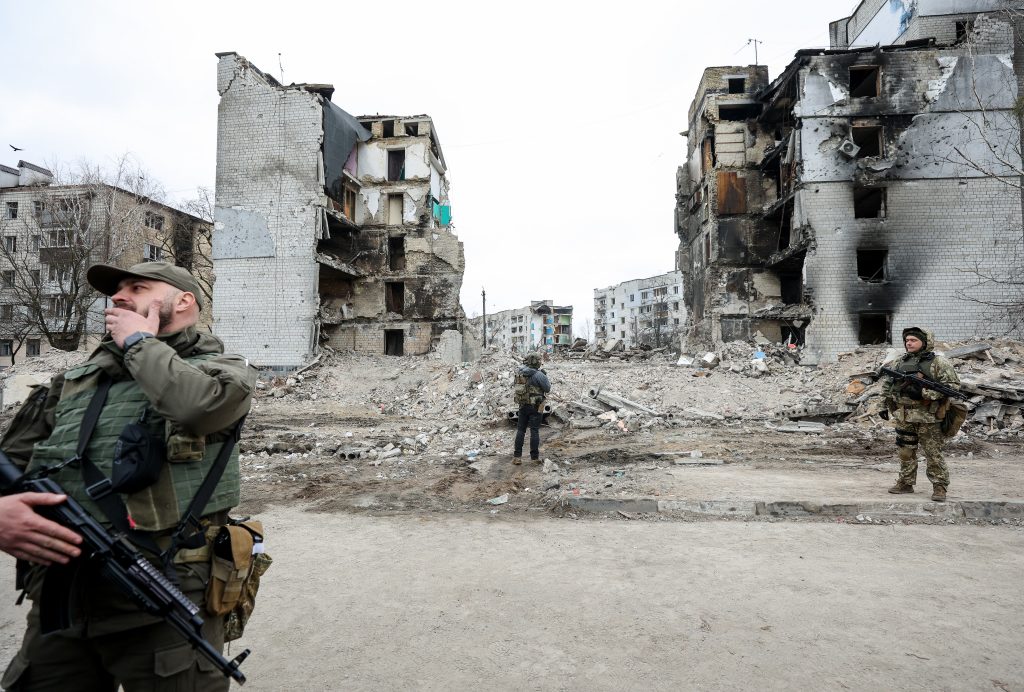By Dingindaba Jonah Buyoya

On February 24th, 2022, Russia’s invasion of Ukraine marked a significant escalation in a conflict that started in 2014 with the annexation of Crimea. This ongoing war has left deep scars on both nations and its effects have spread across the globe.
Media agencies and human rights groups have reported that thousands of lives, including civilians, soldiers, and militants, have been lost since Russia first illegally annexed Crimea in 2014. The casualty count continues to climb as hostilities endure. However, the direct impact on Ukrainians, both civilian and military, is only part of the story.
The consequences of this invasion extend far beyond the immediate regions, with particularly severe impacts felt in less developed countries: food security, humanitarian, economic, and many more. This includes African countries like Zambia, and others.
While global attention has been fixated on the conflict, data from the Integrated Food Security Phase Classification (IPC) revealed that by September 2023, 3.7 million people, constituting 22% of Somalia’s population, were grappling with acute food insecurity. Factors exacerbating this situation included below-average rainfall, flooding, prolonged drought in pastoral areas, and inadequate humanitarian aid coverage.
Russia’s invasion of Ukraine has aggravated Somalia’s food crisis, given that more than 90% of its grain imports originated from Ukraine and Russia. As a direct impact of the invasion, Somalia faced severe shortages in food supplies, increasing the risk of famine amidst global focus primarily on the invasion of Ukraine, leaving Somalia further exposed. This African country had the worst food insecurity experience in the last 30 years.
This shows the ripple effects of the invasion, impacting vulnerable members of society who may not even be close to the war zone.
According to the African Development Bank (AfDB), African countries collectively spend over $75 billion annually to import over 100 million metric tons of cereals. In 2020, 15 African countries imported over half of their wheat products from Russia or Ukraine, with six of these nations relying on the region for over 70% of their wheat supply.
The AfDB noted that the Russian invasion of Ukraine resulted in a shortfall of approximately 30 million tons of grains across the continent, coupled with a sharp escalation in costs.
The International Monetary Fund (IMF) further reported a staggering 23.9% surge in staple food prices across Africa between 2020 and 2022, marking the highest increase since the 2008 global financial crisis.
Food insecurity in a region has the potential to affect even the countries that may be stable as there is often a rise in exports, especially with a weakened policy framework around exports in countries like Zambia.
As Russian and Ukraine are major players in the global oil and gas industry, the Russian invasion directly affects global oil prices. Disruptions in production or supply chains, such as sanctions or geopolitical tensions, lead to fluctuations in oil prices, impacting countries like Zambia.
For instance, in February 2022, Zambia purchased petrol at approximately K19.84 per litre, benefiting from a relatively stable currency following a recent change in government. However, within just over a month after the Russian invasion, petrol prices surged to around K26.50 per litre, marking a sharp 25% increase.
Since the invasion, fuel prices in Zambia have gone up by 41%. Granted, a major part of the increase in the last 8 months has been due to the depreciating currency, but it is important to note that experts have argued that Zambia, like many countries, relies on imported fuel to meet its energy needs.
Therefore, changes in global oil prices have directly influenced domestic fuel prices in Zambia. The increase in global oil prices increase due to Russia’s invasion of Ukraine has led to higher fuel import costs, which has resulted in an increase in retail fuel prices domestically.
Economists have been fearful of further increases if the conflict persists, which will once more hit consumers already dealing with rising food, electricity, and transport costs, economist Peter Mumba said.
The socio-economic impact of Russia’s invasion of Ukraine on poor countries like Zambia has been severe. Zambia heavily relies on imported fuel and commodities, making it vulnerable to global market disruptions.
Any increase in fuel prices can lead to inflation, driving up transportation and food costs, hitting low-income families hardest.
Currency depreciation and decreased investor confidence has hindered economic growth and poverty reduction efforts.
The ripple effects from the Russian invasion have certainly highlighted the connections that exists in the global economy and the challenges faced by the economically disadvantaged in a lot of African countries, including Zambia.



